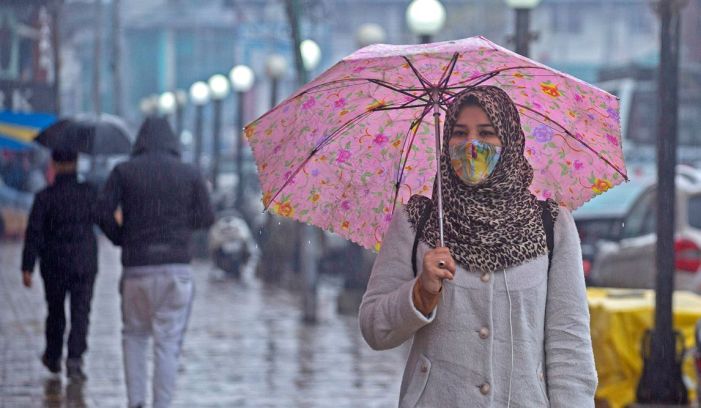The heavy downpour for the past two days has threw normal life out of gear in Kashmir, creating inconvenience for people to do Eid shopping.
People were seen wearing warm clothes to prevent from the cold as temperature plummeted to 10.3 degree Celsius in Srinagar, the summer capital of Kashmir.
Even rains could not allow people to move freely in markets for Eid shopping. “I had come all along from Baramulla for buying some bakery and clothes for my kids but unfortunately it is difficult to move around here,” Altaf Hussain told Climate Health Review.
“All roads are submerged in Srinagar,” Hussain said.
Srinagar has turned into cesspole as all major roads and pavements have been dug as part of beautification process for G-20 meetings in Kashmir.
The continuing rains has led to the rise in water level in the Jhelum River, which flows from south Kashmir to north Kashmir through the capital city Srinagar.
Fresh snowfall was recorded in the upper reaches of Kashmir including Gulmarg, Pahalgam, Keran, Gurez, and near Baltal Base Camp, which falls en route to the Amarnath cave.
Even most of the tributaries of Jhelum like Ningli at Wagoora in north Kashmir are flowing above danger level, triggering panic among the locals.
The authorities have issued advisories given the rising water level. They directed people, especially the tourists in the valley, to avoid venturing closer to water bodies in order to avoid any untoward incidents.
According to the MeT department, Jammu and Kashmir is likely to experience widespread light rain or thunderstorms in the next 24 hours.
This comes after the J&K experienced similar weather on Tuesday. The minimum temperatures recorded in various regions are as follows: Srinagar at 10.3 degrees Celsius, Pahalgam at 5.4 degrees Celsius, Gulmarg at 2 degrees Celsius, Kargil at 3.3 degrees Celsius, Leh at 1.6 degrees Celsius, Jammu at 17.4 degrees Celsius, Katra at 16 degrees Celsius, Batote at 10.1 degrees Celsius, Banihal at 10.2 degrees Celsius, and Bhaderwah at 11.9 degrees Celsius.




